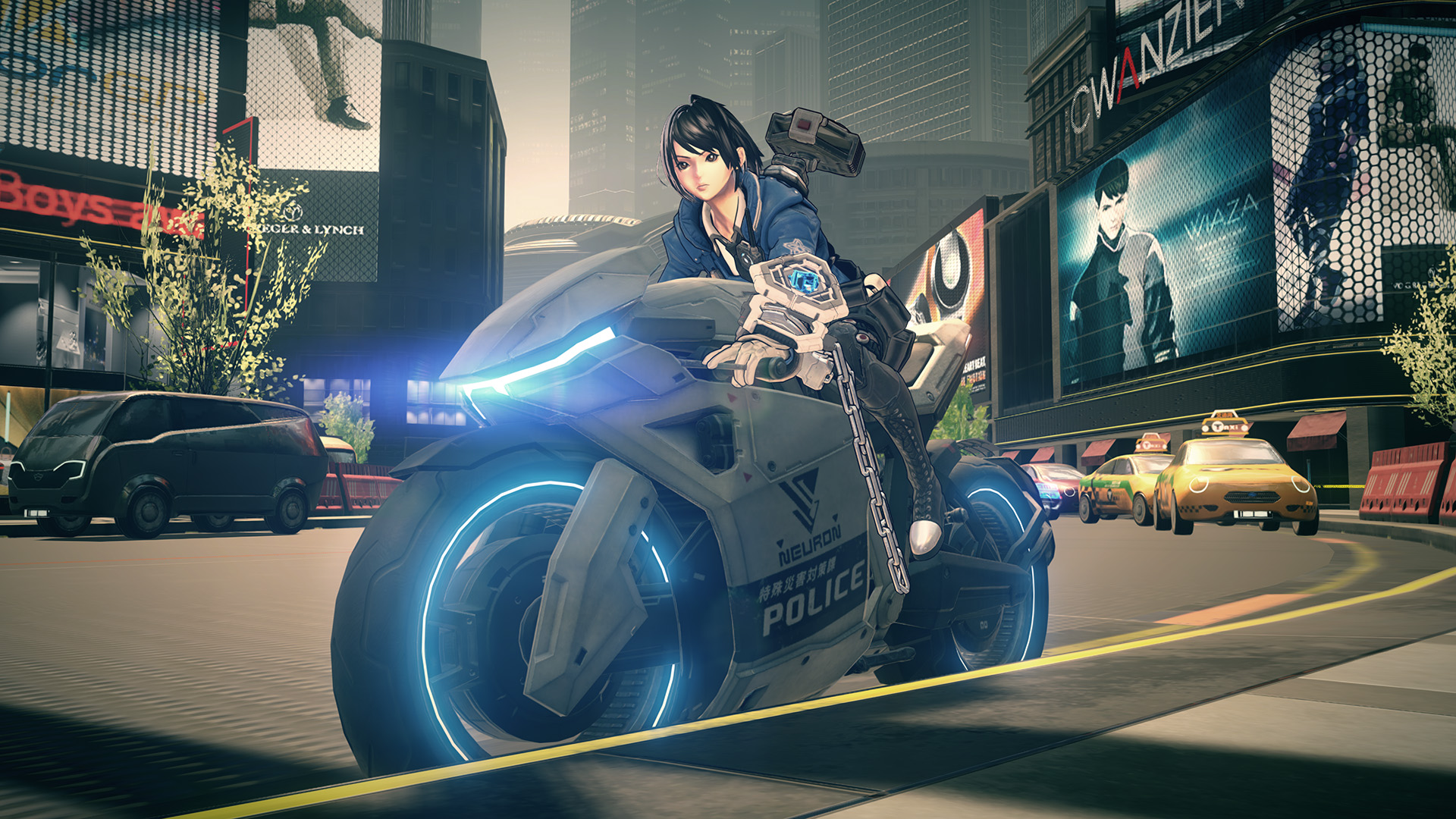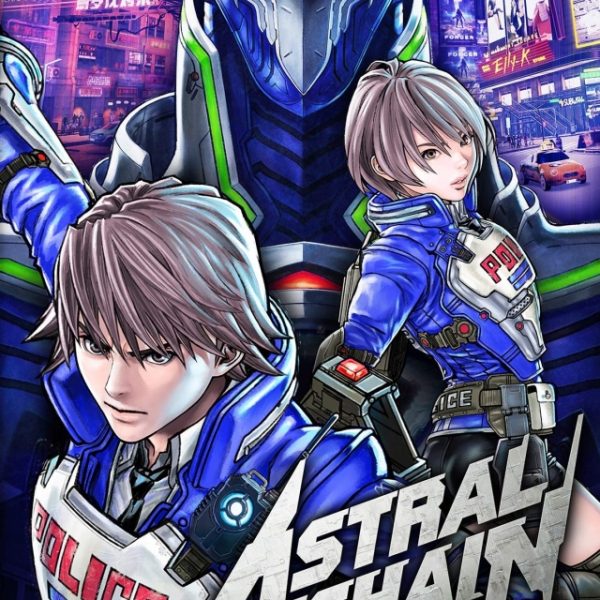
A day in the life. 428: Shibuya Scramble.
July 30, 2020
Dominate the future. Front Mission 4.
August 11, 2020Off the Astral Chain of fools.
Astral Chain is an action/adventure game developed by PlatinumGames. If you’re familiar with PlatinumGames, then there’s a chance that your likeliness to try Astral Chain (and the reason you’re checking out this review) is contingent upon whether or not there’s that solid, action-packed gameplay the developer is known for. Astral Chain has this, but there’s more to it that makes the game tricky to recommend.
Astral Chain takes place in the year 2078 where the remainder of humanity lives in an establishment called The Ark. Despite it resembling something of a safe haven, humans are threatened by monsters called Chimeras. To vanquish the Chimeras, the policewomen and policemen of Neuron use scientifically advanced weaponry and controlled Chimeras called Legions. At the start of the game, you select a rookie policeman or policewoman (with the person you don’t select becoming your character’s sibling) and begin your first mission as a member of Neuron. Long story short, the mission ends in disaster, but there’s some silver lining when your character manages to tame a loose Legion and make it his/her own. This promising development might be the breakthrough Neuron needed in the fight against the Chimeras.

The futuristic world where humanity battles enemies that look like a fusion between monster and mech is magnificent. Platinum created a fully realized setting filled with personality. During the game, you’ll come to know other police members of Neuron and all of their quirks, interests and traits. Throw in some supporting cast members and some devious villains, and you have a solid foundation of a story. Unfortunately, there are two flaws that are hard to ignore. The first is your main character. He/she is a silent protagonist. They’ll grunt, shout, gasp and chuckle but they never speak. Astral Chain’s world is lively, so having a silent MC is off-putting. The other flaw involves the Legions. Legions are, essentially, Chimeras that are controlled against their will. In other words, animal cruelty is one of the game’s themes. Personally, I was hoping the story would touch on it, but it never did.
Astral Chain is divided into missions that usually follow the same format. After the opening scenes, you’ll be taken to Neuron’s HQ. This is where you can chat with other members of Neuron, customize your character’s appearance, and upgrade your weapon’s power. There are scattered items to find and simple fetch quests to finish for some extra rewards. The best amenity at HQ is the training simulator; perfect for trying to master the multitude of combos and techniques. Finishing the first mission gives you IRIS, a display system that lets you scan the environment for intel.

Outside of Neuron, you’ll be looking for citizens to help or Chimera to beat into submission. Helping out around town grants extra rewards, but the process is usually a tedious fetch quest. More times than I cared for, many of these quests (and some of the main missions) required the use of stealth. Stealth can be hit or miss in an action title, and in Astral Chain it’s a big miss. The camera is lousy, and trying to fight that while staying hidden from detection is a recipe for disaster.
If you’re not trying to be sneaky or play good Samaritan, then you’re battling alongside your Legion. When the Chimera show up, the action is nonstop for better of for worse. Your MC is somewhat capable on their own. Your weapon can switch between a saber, a gun and a massive sword. They can also guard, jump and dodge. But, combat’s true potential opens up when you summon your tethered Legion. Like your main weapon, Legions can be swapped on the fly as soon as you acquire them. With your Legion “astrally” chained to you, you will perform impressive combos as you work in tandem and demolish regular enemies and imposing bosses. There are variety of special skills and techniques that can be used alongside the regular attacks. You can even control your Legion’s movement and utilize the chain to lasso or clothesline your enemies. Playing red rover with your enemies is a highlight. Actually, watching the action unfold in general is a highlight. The downside to it is that it’s overwhelming. There’s a lot to keep up with; almost like you’ll need an extra set of hands on the controller to get the most out of combat. With the camera being as cruel as the Chimeras, no stage will go as smoothly as intended. When combat works, it works. But, when it doesn’t, then it’s too much.

The gameplay is touch and go the further you get and as more options become available. But, one thing that remains fantastic from start to end is the presentation. Astral Chain is absolutely beautiful. An anime world in the same vein as Akira or Neon Genesis, Astral Chain is a true sight to behold. If you’re standing in the police station, then Astral Chain looks beautiful. If you’re moving through a town, then Astral Chain looks beautiful. If you’re performing off-the-wall feats with your Legion, then Astral Chain looks beautiful. The music is equally impressive with a techno inspired soundtrack filled with personality that matches the presentation. The voice acting is solid, but again, only hearing your selected character grunt or gasp is odd in a world fully of otherwise chatty individuals.
If you acclimate to Astral Chain, then the game will last a good 15 hours on a first run. With multiple difficulty options and two possible MCs, there’s potential for future replays. For me, however, once through was enough. Astral Chain is fun, but it’s frustrating when things don’t go your way. These moments of struggle stick out more than the moments that shine. Fans of action will get plenty of it in Astral Chain, but that intensity comes with a set of problems.
Overall, 6/10: Serving as a police member of Neuron will require patience and perseverance. Astral Chain delivers intense yet inconsistent action in an amazing world.





